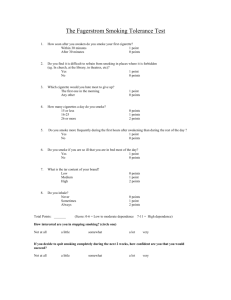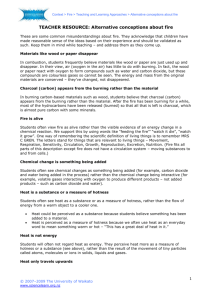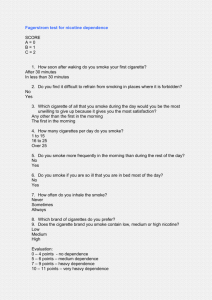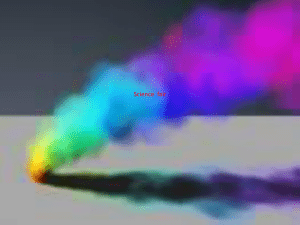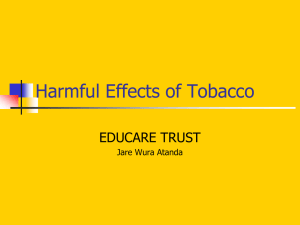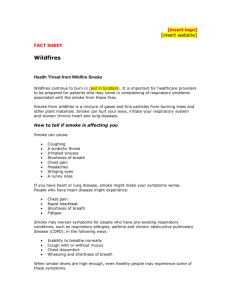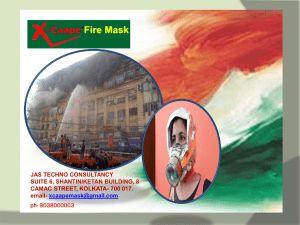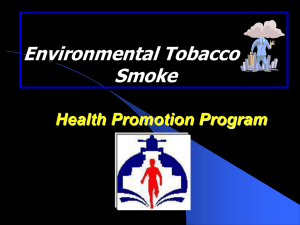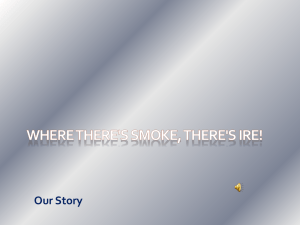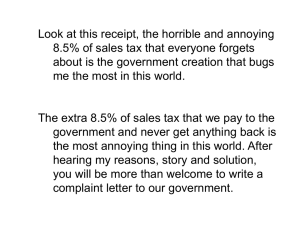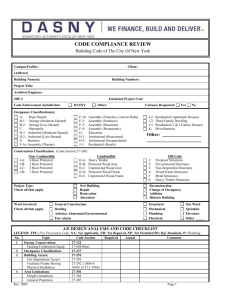Controlling Smoke
advertisement
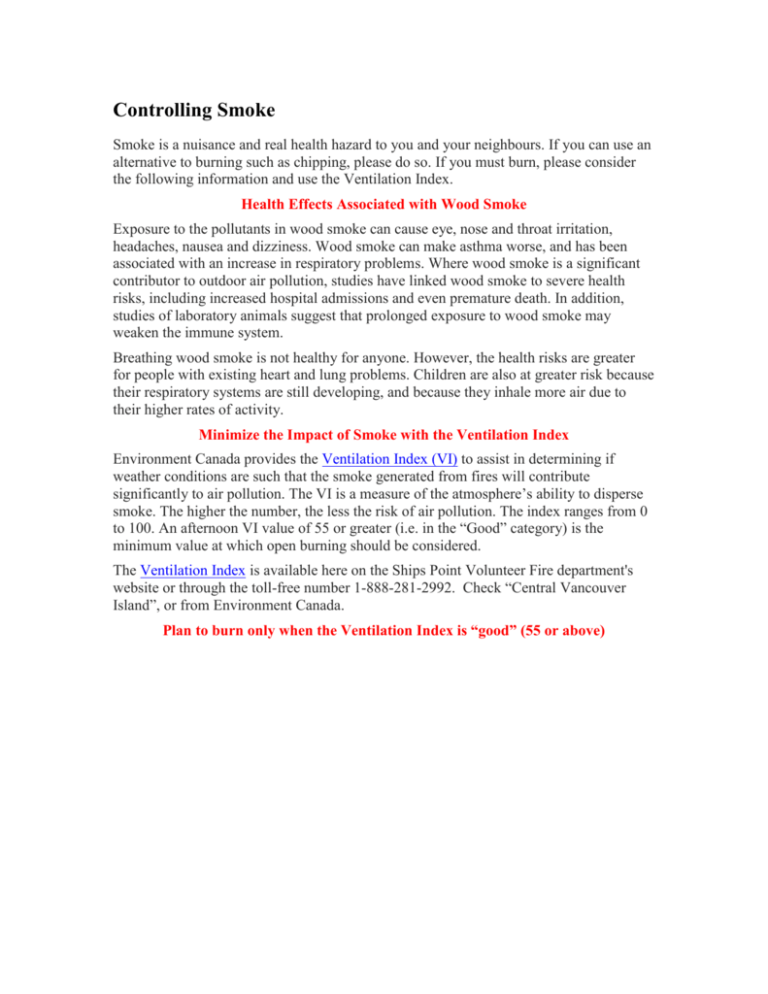
Controlling Smoke Smoke is a nuisance and real health hazard to you and your neighbours. If you can use an alternative to burning such as chipping, please do so. If you must burn, please consider the following information and use the Ventilation Index. Health Effects Associated with Wood Smoke Exposure to the pollutants in wood smoke can cause eye, nose and throat irritation, headaches, nausea and dizziness. Wood smoke can make asthma worse, and has been associated with an increase in respiratory problems. Where wood smoke is a significant contributor to outdoor air pollution, studies have linked wood smoke to severe health risks, including increased hospital admissions and even premature death. In addition, studies of laboratory animals suggest that prolonged exposure to wood smoke may weaken the immune system. Breathing wood smoke is not healthy for anyone. However, the health risks are greater for people with existing heart and lung problems. Children are also at greater risk because their respiratory systems are still developing, and because they inhale more air due to their higher rates of activity. Minimize the Impact of Smoke with the Ventilation Index Environment Canada provides the Ventilation Index (VI) to assist in determining if weather conditions are such that the smoke generated from fires will contribute significantly to air pollution. The VI is a measure of the atmosphere’s ability to disperse smoke. The higher the number, the less the risk of air pollution. The index ranges from 0 to 100. An afternoon VI value of 55 or greater (i.e. in the “Good” category) is the minimum value at which open burning should be considered. The Ventilation Index is available here on the Ships Point Volunteer Fire department's website or through the toll-free number 1-888-281-2992. Check “Central Vancouver Island”, or from Environment Canada. Plan to burn only when the Ventilation Index is “good” (55 or above)
